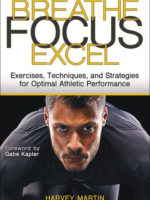Russian Archaism considers the aesthetic quest of Russian modernism in relation to the nation-building ideas that spread in the late imperial period. Irina Shevelenko argues that the cultural milieu in Russia, where the modernist movement began as an extension of Western trends at the end of the nineteenth century, soon became captivated by nationalist indoctrination. Members of artistic groups, critics, and theorists advanced new interpretations of the goals of aesthetic experimentation that would allow them to embed the nation-building agenda within the aesthetic one.
Shevelenko’s book focuses on the period from the formation of the World of Art group (1898) through the Great War and encompasses visual arts, literature, music, and performance. As Shevelenko shows, it was the rejection of the Russian westernized tradition, informed by the revival of populist sensibilities across the educated class, that played a formative role in the development of Russian modernist agendas, particularly after the 1905 revolution. Russian Archaism reveals the modernist artistic enterprise as a crucial source of insight into Russia’s political and cultural transformation in the early twentieth century and beyond.









Be the first to review “Russian Archaism”